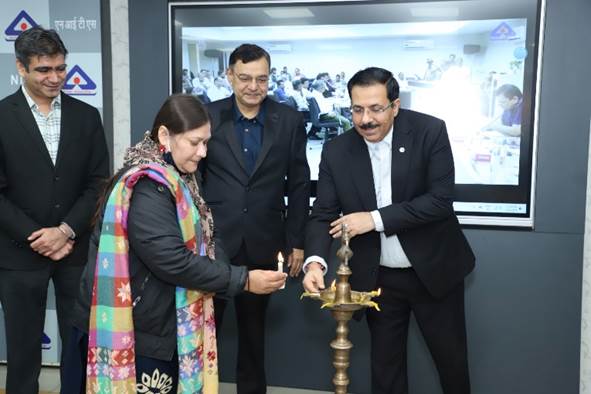Academia-Industry Collaboration Key to Strengthening Healthcare Standards: BIS Annual Convention
The Annual Convention on Healthcare Sector provided an essential platform for academia and industry to collaborate on shaping the future of healthcare standards in India.

- Country:
- India
The Bureau of Indian Standards (BIS), under the Department of Consumer Affairs, Government of India, has emphasized the critical role of academia-industry collaboration in shaping standards that drive innovation and economic growth. The need for such partnerships was highlighted by Shri Pramod Kumar Tiwari, Director General, BIS, during the Annual Convention on Healthcare Sector held at the National Institute of Training for Standardization, Noida.
The convention was the first in a series focusing on the healthcare and medical device sector, aimed at generating awareness regarding standardization and exploring opportunities for collaboration with academic and research organizations. The event witnessed participation from 36 representatives from 28 institutions, including deans, heads of departments, faculty members, and experts from research organizations.
BIS aims to strengthen the usability of Indian Standards (IS) beyond industries and consumer groups by engaging academia and research bodies. The convention served as a platform to develop and refine healthcare standards, ensuring their scientific rigor and alignment with emerging technological advancements.
Key Highlights of the Convention
Director General’s Address
Shri Tiwari underscored the importance of fortifying India’s healthcare manufacturing base and positioning Indian standards for global recognition. He discussed initiatives such as:
Appointment of Chairs of Standardization in academic institutions.
Signing of MoUs with academic and research organizations.
Orientation programs for faculty and students to integrate standards into curricula.
Encouraging experts to participate in BIS technical committees and R&D projects.
He also pointed out key challenges, such as limited manufacturing capabilities and research restrictions, which need to be addressed through stronger academia-industry partnerships.
Expert Sessions on Healthcare Standardization
Shri Chandan Bahl, Scientist-G and Deputy Director General (International Relations), BIS, emphasized that healthcare standards must be both scientifically advanced and timely to meet sectoral needs. He highlighted academia’s role in ensuring that healthcare standards evolve with the latest technical innovations.
Shri Deepak Aggarwal, Scientist-F and Head (Standards Coordination & Monitoring Department, BIS), provided an overview of BIS activities, including:
Interpretation and implementation of key standards.
Digital tools and interfaces for seamless standardization processes.
Shri Chinmay Dwivedi, Scientist-E and Head (Medical Equipment & Hospital Planning Department, BIS), briefed participants on standards formulation in the healthcare sector. Officers from the Medical and Hospital Devices Division (MHD) also presented important standards relevant to biotechnology and biomedical engineering.
Strengthening Academia-Industry Partnerships
The convention marked the beginning of an active engagement between the research community and BIS in standardization. BIS is actively working towards:
Establishing research-driven standardization models.
Encouraging collaborative projects between industries and academic institutions.
Creating a standardization ecosystem that integrates academia’s latest technological advancements with industry applications.
Future Roadmap
To sustain momentum, BIS plans to:
Expand collaborations with universities and research bodies across multiple disciplines.
Develop new healthcare standards in consultation with academic institutions.
Organize regular conventions and workshops for deeper engagement in the standardization process.
The Annual Convention on Healthcare Sector provided an essential platform for academia and industry to collaborate on shaping the future of healthcare standards in India. As BIS continues its efforts to bridge the gap between research and industry, it is expected that standardization in healthcare will drive innovation, improve medical product quality, and enhance India’s global competitiveness in the sector.
- READ MORE ON:
- Bureau of Indian Standards
- Pramod Kumar Tiwari










